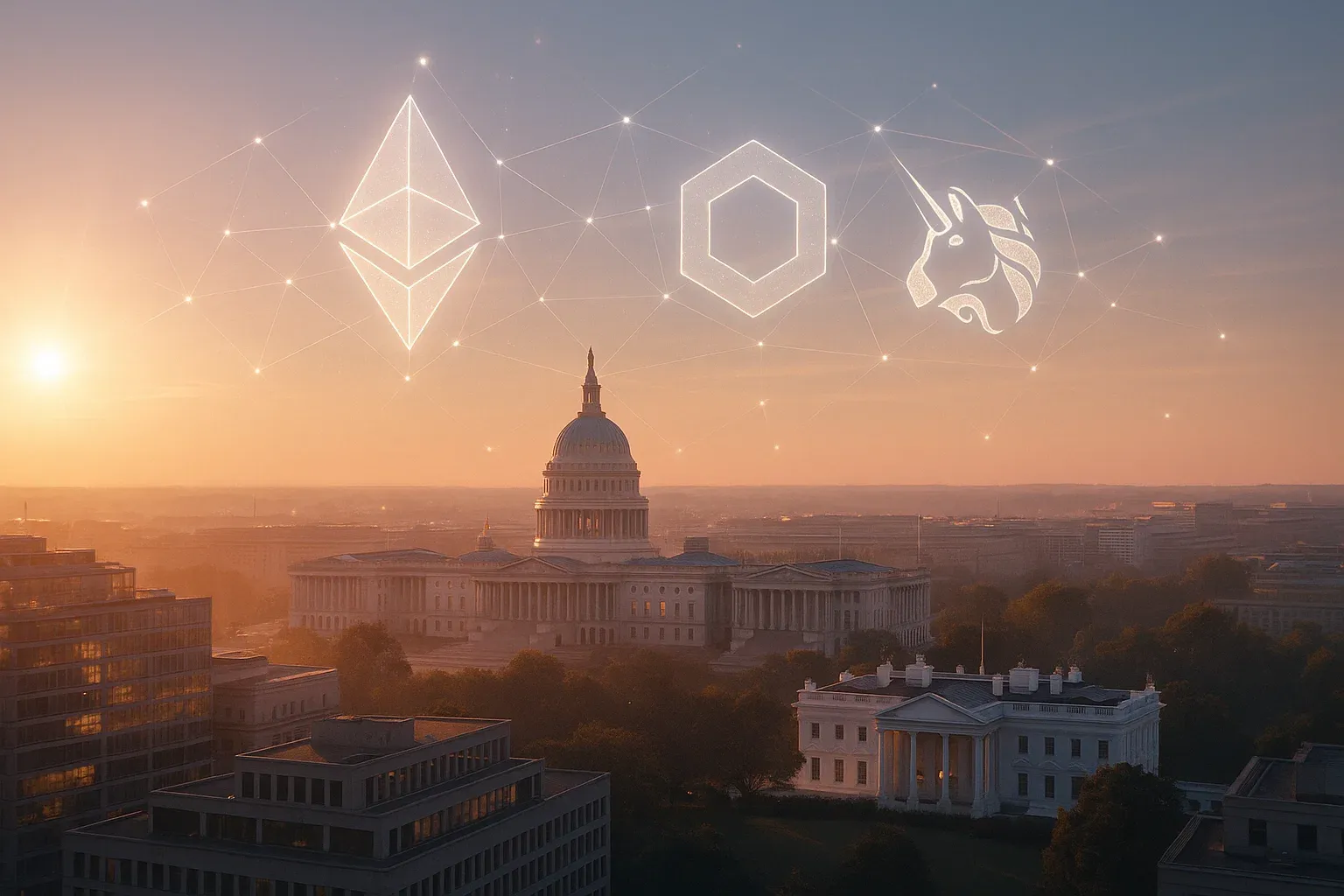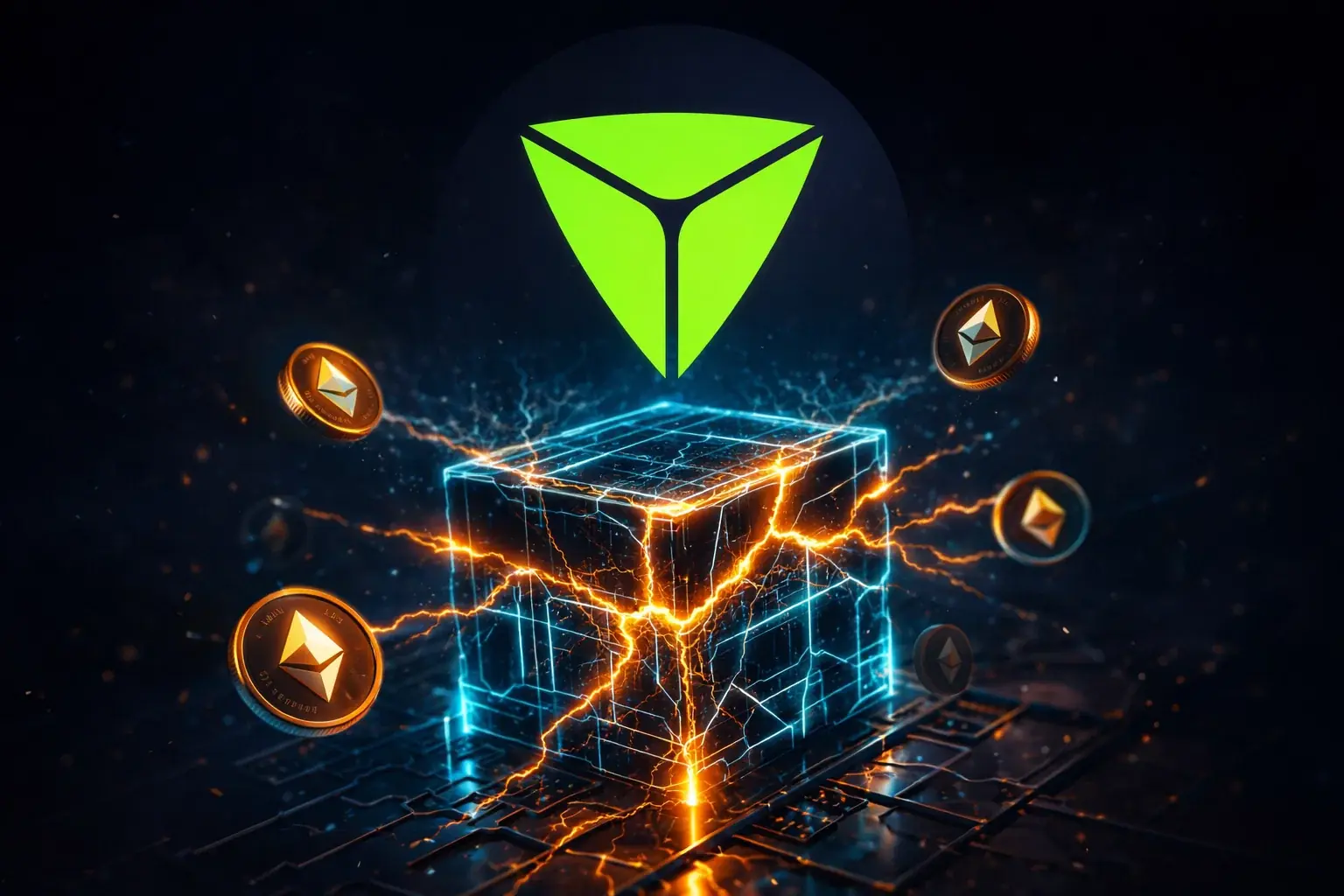Crypto Executives and US Legislators Push for a Market Structure Agreement
On 22 October 2025, crypto executives from Coinbase, Uniswap Labs, Solana Policy Institute and Chainlink gathered with senators and White House officials in Washington, D.C., for a new round of meetings aimed at advancing the long-awaited market structure bill.
The day, dubbed "crypto blitz," was a day of meetings aimed at advancing the long-awaited market structure bill, for a new round of meetings aimed at advancing the long-awaited cryptocurrency market structure bill.
The day, dubbed a "crypto blitz" by FOX reporter Eleanor Terrett, saw a series of back-to-back meetings with both parties. Coinbase CEO Brian Armstrong called the legislative push "at the height of its momentum,"emphasising the shared goal of"getting a bill to President Trump's desk within this year."
🚨NEW: Sitting on a flight from NYC ➡️ Phoenix, going through my notes from today's Capitol Hill "crypto blitz." Here's a recap of the day through the eyes of the people on the ground:
- Eleanor Terrett (@EleanorTerrett) October 23, 2025
The first meeting of the morning between some GOP members of the Senate Banking Committee and...
Kristin Smith, president of the Solana Policy Institute, expressed a similar sentiment, saying the meeting with Democratic senators was "a necessary step" and proof that "many members of Congress really want to get this job done." However, the optimism was dampened by anger over a leaked proposal on DeFi that caused divisions within the talks.
The DeFi Regulation Becomes the Main Point of Friction
The controversy revolves around how to regulate decentralised finance (DeFi), an industry that operates without traditional intermediaries.
A leaked draft democratic proposal would classify front-end operators, validators and even developers as 'digital asset intermediaries'. The change would subject many DeFi participants to full registration, compliance and 'Know-Your-Customer' (KYC) obligations, effectively treating open source protocols like banks or brokers.
Industry leaders reacted immediately, warning that such a regulatory framework could 'criminalise code' and make it impossible for developers to operate in the US. One participant described the meeting as "intense," adding that "DeFi is the issue that can make or break the bill."
Meanwhile, Republicans support the Responsible Financial Innovation Act (RFIA) and the Digital Asset Market Clarity Act, both of which lean towards a lighter touch, focusing on regulating custodial entities rather than software protocols. The rift between the two camps has now become the main obstacle to bipartisan consensus.
Why DeFi Oversight Could Redefine Crypto Regulation in the US
The stakes go beyond the political debate: this bill could redefine how the US defines and regulates all digital assets. If passed, it would provide long-awaited clarity on issues such as token classification, exchange oversight, and stablecoin integration.
However, flawed regulatory language could have serious consequences:
- Fuge of Innovation: overly broad regulation of DeFi could push projects to foreign hubs such as Singapore, Hong Kong, and Dubai.
- Institutional Hesitation: Without clear boundaries, traditional financial institutions will remain reluctant to participate in DeFi markets.
- Regulatory Credibility: The United States risks losing its global influence on crypto governance if it fails to provide a workable framework.
As White House Crypto and AI Czar David Sacks told Republican senators, the administration considers the market structure bill a top priority, a sign that the executive branch is now fully engaged in the process.
What to expect now from the market structure bill
Despite general agreement on the need for legislation, time is running out. The US government remains partially shut down and only a few legislative windows remain before the end of the year.
Key indicators to monitor in the coming weeks:
- Whether the Senate Banking Committee will schedule a session to review the bill.
- Whether lawmakers will be able to redefine "DeFi brokers" in mutually acceptable language, which could lead to significant changes.
- The continued inflows into the ETF and the resilience of the crypto market could strengthen the industry's lobbying momentum.
Armstrong, Smith and other executives are expected to return to Capitol Hill in early November. If they can help lawmakers bridge the gap on DeFi, the US could finally establish clear rules for the crypto market. If not, the country could face another year of uncertainty.
Conclusion: The Battle Over DeFi Will Decide the Future of US Crypto Policy
The market structure bill represents the most serious attempt to date to bring digital assets under a unified federal framework. But the fate of that law depends entirely on the definition of DeFi and Washington's ability to create rules that protect investors without stifling innovation.
Until then, the cryptocurrency industry is in familiar territory: somewhere between regulatory progress and political paralysis.








